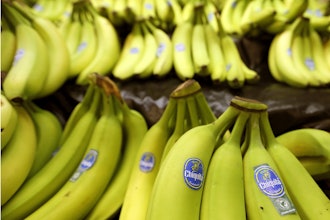
MADRID (AP) — The Spanish government has introduced new regulations on the pricing of food in supermarkets, in response to weeks of country-wide farmers' protests over plummeting incomes.
Under the new rules, adopted under a royal decree Tuesday by ministers in Spain's left-wing governing coalition, contracts between farmers and the companies distributing vegetables, fruit and meat will have to reflect the costs of production and require that the final retail prices can't be lower than those.
The changes, which don't need parliamentary approval, came on another day of protests as thousands of farmers took to the streets around the southern province of Jaén and in Alicante, in eastern Spain, blocking highways with tractors and burning boxes of agricultural produce.
Spain's 2-month-old government has faced almost daily protests for the past month by farmers who complained that what they get paid for their products is often below their production costs.
Agriculture Minister Lluis Planas said the new regulations represent a response to “the legitimate concerns by farmers and cattle breeders."
“A great part of those concerns were reasonable and had to be addressed,” he told reporters at a regular briefing following the weekly Cabinet meeting.
One exception to the new rules relates to the promotional sale of food products with looming expiration dates, in line with the country's long term goals to cut on food waste.
Planas said the measures aimed to deal with "the problem of unfair prices," which he blamed on market volatility, the impact of trade disputes worldwide and weather-related disasters, as well as “imbalances” in price setting mechanisms.






















